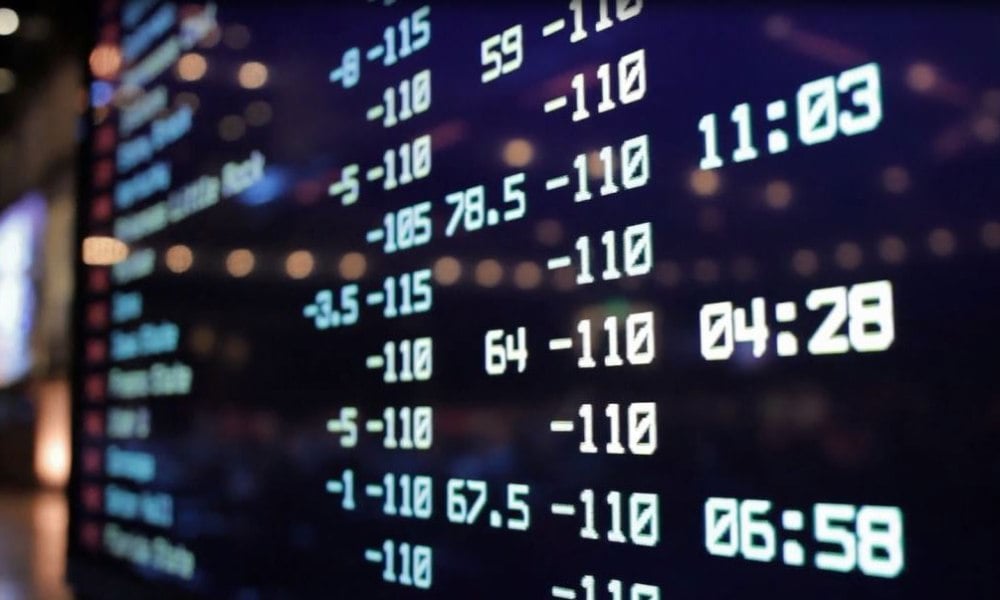Limits are a hot topic in the sports betting space these days. Go on Twitter and you’ll see constant debate about what causes users to get limited and how you can avoid and/or circumvent limits, as well as lamentations about the quick trigger many books have when cutting customers off.
Some criticisms are fair; some are not. Today, we’ll discuss why sportsbooks limit, what a world without limits would look like, how book and bettor can reach common ground, and the decision frustrated bettors have to make. Let’s get into it.
WHY DO SPORTSBOOKS LIMIT?
In a sentence: Sportsbooks limit because they can and it’s optimal for them to do so from a business perspective. I’ll note that we are primarily discussing domestic sportsbooks today as they are most often the target of limiting complaints.
At their core, books are businesses designed to earn as much profit as possible. They are not taking bets purely for the joy derived from the art of bookmaking. The exact methodology sportsbooks use to identify winning players is unknown and likely varies by book, but it’s safe to assume it revolves around closing line value, when and what you are betting, and more factors. Whatever the process is, sportsbooks are fairly efficient at identifying which bettors are likely to win long-term and which aren’t, and then they cut the limits down on the former group.
Those familiar with the price discovery process may ask why they don’t take bets from winning players and use that information to set better lines. The answer: They don’t need to. As talked about in our “Disproving Popular Sports Gambling Fallacies” article, recreational sportsbooks like DrafttKings, BetMGM, etc. aren’t finding efficient numbers by themselves – they are moving on air to copy market-making books. They don’t need to undergo perfect price discovery themselves because the information is available freely elsewhere. They have to choose between taking real bets from winners (and thus losing expected dollars) and copying Circa lines, or not taking sharp bets and copying Circa lines. From a business perspective, that’s an easy decision.
WHAT WOULD A WORLD WITHOUT LIMITS LOOK LIKE?
It’s helpful to consider the other extreme – a world with no limits – when discussing the topic because most limited bettors have no idea limits are the only thing allowing them to win. To properly examine this, we need to look at this hypothetical world from both the perspective of a bookmaker and a bettor competing for +EV bets.
From a bookmaker’s perspective, a world with no limits (or ridiculously high limits) means they have to be very careful with what they offer. For example, compare the Circa menu to the DraftKings one. I write this the day before the NBA play-in games. On DK, I can bet on how many steals Dyson Daniels (a bench player for the Pelicans) will have. On Circa, I can only bet on the full-game spread, money line, and total. The attack surface for DK is enormous and they’re okay with it because they can get rid of customers they don’t want. If books were taking huge limits, they would only offer more efficient, larger markets. Furthermore, strategies that currently win like steam chasing (“top-down betting”) and arbitrage betting would not exist because every book would be a market-maker. You can’t steam-chase Circa and Pinnacle or de-vig Pinny at rec books if rec books literally don’t exist. For most winning bettors (myself included), the existence of limits is the only reason they can win.
A world without limits also means the competition increases. There are people out there who beat NFL sides on the weekend. People are betting highly popular games at post because it lets them get the most money down. More importantly, there are companies with very smart people who don’t invest much or any money in sports trading simply because the payoff isn’t worth their time. Take away limits, and suddenly it is worth it for them. In other words, people who are either exclusively focusing on the most liquid sports markets or not betting on sports at all would suddenly become interested in markets that are currently relatively beatable. Sports markets in a world without limits would become very sharp very fast, which is bad news for the average winning bettor. A smaller offering would eliminate most winning bettors, but this second development – big companies entering the sports betting ecosystem – would kill off all but the absolute elite, similar to stock trading.
WHAT NEEDS TO HAPPEN FOR FAIRER LIMITS?
Despite all of that, it’s still fair to say limits are extremely frustrating from a player’s perspective and there must be a middle ground between the current environment and the extreme hypothetical outlined above with no limits or absurdly high ones. Especially given the incessant advertising campaigns, it feels bad getting cut down to single-digit dollars in some markets. So what’s the solution?
One possibility is regulatory action forcing sportsbooks to take a minimum dollar amount on each bet, with the dollar amount likely varying by market. There are more pressing issues right now (Jontay Porter scandal, Temple basketball investigation, etc., plus possibly marketing regulations), but this seems possible sometime down the road. One could argue that overly harsh limits on domestic books push consumers back toward offshore options, which costs states tax dollars. You could also argue the marketing campaigns right now are predatory considering some books will almost cut you off completely if you show the ability to win long-term.
Another option is that a sportsbook markets itself as one where users can get not-terrible limits on every market. Some books (Circa, Prime Sports) already do this, but they aren’t available in many states and their respective menus are much smaller than DK/FD, as outlined above. With so many upstart rec books (PointsBet/Fanatics, ESPN, etc.) struggling to gain market share vs. DK/FD, perhaps one could differentiate itself by promoting $100 (or a different number) minimum limits across all markets. With that being said, it’s worth mentioning that these are still companies with lots of money and brainpower working toward optimizing strategy. The fact that none of them have done this likely means it’s not optimal, but it’s just an idea of what would have to happen for higher limits.
WHAT CAN BETTORS DO?
Limits are the price bettors pay for playing the easier games. If you’re beating small markets, chasing steam, or arbitrage betting, you have two choices. You can either find a way around the limits by getting accounts, finding more outs, or otherwise circumventing limits. You could also try to level up and beat more difficult markets. If you want to scale, these are really your only two choices, and complaining about limits doesn’t get you anywhere financially. As explained above, limits may be the only force allowing you to beat those markets.
If you’re already beating hard markets from your own origination, you should have no problem getting around limits using books like Circa, Pinnacle, and other market-making books. If you can’t bet into those books because of your location, you may want to consider forming partnerships with people who can bet at those places. If you can legitimately beat hard markets, that’s a rare skill and you likely won’t have much trouble finding people willing to help you.


